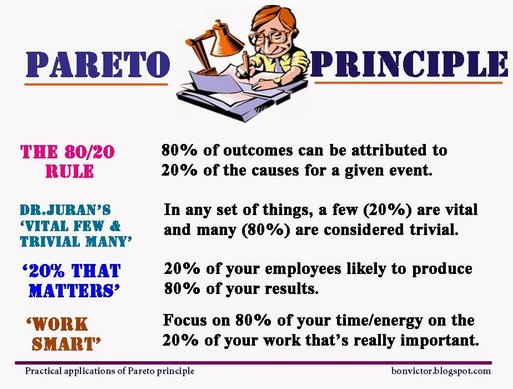
Most writers experience, at times, the feeling of being overwhelmed. Sometimes I feel like I'm running on a railroad track, and the train behind me is getting closer and closer. Now, even more so with the growing pressure to have a presence on the social media. One class I took advised writers to do a hundred tweets a day to five hundred people.
I don't know. I don't have a hundred things to tweet about in a day, much less interesting things.

Wisdom and experience suggest that many writers could do a better job of managing their time, particularly during those high-intensity weeks or months when everything seems to come crashing down. Well, duh! That's a no brainer.
.
There are lots of blogs and books about how to do just that. Writers have advice and tips for others and personal experiences to share. And, if you've been part of corporate America at one point in time, you've probably either read books or taken courses on time management.
Yes. Time management is a good thing. It's a skill we all should practice. Taking one class isn't enough. You need a refresher course about every six months to regroup and get back on track.
It's worth doing and there are lots of things writers can learn, particularly from each other, about what works and what doesn't, such as using a kitchen timer and limiting your time on social media. Listen when your friends want to share their ideas.

WHERE DID WE MISS THE BOAT?
In our efforts to do it all, it's possible to lose our way.
Point One: The Vital Few vs. The Trivial Many
Controlling the time you spend on your different activities isn't enough. Sure, you have to do it, but you need to apply the Pareto Principle (the Golden Rule of Time Management) in the process.
"Which is?" she asked.
Without going into all the gory details of its history, the Pareto Principle states that "20 percent of a person's effort generates 80 percent of the results."
"The value of the Pareto Principle for a manager is that it reminds you to focus on the 20
percent that matters. Of the things you do during your day, only 20 percent really matter.
Those 20 percent produce 80 percent of your results. Identify and focus on those things.
When the fire drills of the day begin to sap your time, remind yourself of the 20 percent
you need to focus on. If something in the schedule has to slip, if something isn't going to
get done, make sure it's not part of that 20 percent." [Pareto's Principle - The 80-20 Rule By
F. John Reh] http://management.about.com/cs/generalmanagement/a/Pareto081202.htm
Thus, writers, like everyone, should shift their focus to those activities that produce results rather than on activities which do not.

To apply the Pareto Principle, writers must learn the difference between urgent and important activities.
A good share of the 80% of your work that doesn't produce results falls into the "urgent" category. And if you don't think about it, and if you don't set goals and priorities, it's easy to fall into the trap of responding to tasks that may be urgent, but not important.
▪ Important activities have an outcome that leads to the achievement of your goals.
▪ Urgent activities demand immediate attention, and are often associated with the achievement of someone else's goals. We concentrate on these because they are the "squeaky wheels that get the grease." They demand attention because the consequences of not dealing with them are immediate.
And we tend to set aside the important tasks until later “when I have time.”

▪ Pressing or burning imperatives that must be completed
immediately.
▪ Critical or vital tasks that someone else insists be
performed without delay.
▪ Unrelenting and persistent routine demands on your time.
This doesn’t mean that you shouldn't address the Urgent. But instead of dropping what you’re doing, ask yourself the following and then decide if you are going to stop working on the important activity for the urgent one.
▪ Is it a priority? Will it produce a longer time, important result?
▪ Does the task need to be done right at this moment, or is there something else on
your list that should come first?
• Could someone else do it?
▪ Is it going to take your focus off of more important tasks with long-term results?
▪ Does the task need immediate attention, though it has only small and short-term
results?
▪ If left undone, is the problem likely to grow into something important as well as urgent? What are the consequences of not doing it right now?

Many writers often don't have a clear understanding of the difference between working efficiently and working effectively.
We all should strive to use our time both effectively and efficiently; there's a difference and we need to be aware of it.
▪ Effective (adj.) Adequate to accomplish a purpose; producing the intended or expected result. Being effective is all about doing the right things (to produce the results, achieve the goals, etc.)
▪ Efficient (adj.) Performing or functioning in the best possible manner with the least waste of time and effort. Being efficient is all about doing things in the right/correct manner.
Tim Ferris, in his 2007 bestseller The 4-Hour Work Week suggests we learn to focus our attention on the 20% of our activities that contribute to 80% of the results. Gee, that sounds familiar.
Point Four: Overcome Procrastination
Procrastination is a time stealer that can be eliminated. People tend to procrastinate for two reasons.
▪ The task is considered to be unpleasant. To overcome a reluctance to engage in less pleasant tasks, tackle the difficult ones first and get them over with. Otherwise, you will fret about it and not do anything and it still needs to be done.
▪ The entire task looks overwhelming. So much so that a person doesn’t know where to begin. Break the task down into smaller tasks based on sequence and priority, and tackle them one at a time.
Point Five: Doing the Right Things
How do we figure out what "the right things" are? Well, they are those activities that produce the results we want.
There's rub. You have to know what results you want. Not enough writers take the time to really understand what they want out of writing or what results they want to produce.
I know, I know. Every writer wants to be on the New York Times best seller list. We all want to sell millions of copies of our books and earn a seven figure salary. We want it all...and most of us probably can't have it all. And ... it isn't all about what we want, or think we want?

We all know the answer to that. We write because we are compelled to write. Our DNA demands it. No choice. I think of it as a genetic defect all writers share.
However, we do make choices about what we write, how often, the genres we write in, how or if we publish, and so on. Just like our characters, those decisions are driven as much by what results we need as those we want.
When we create a character in a novel, we write down what the character is most afraid of, what he/she wants (goals), and what he/she needs (internal motivation). And as a writer, you know "wants" and "needs" are not necessarily the same thing. That works in novels because those motivations also drive real live human beings. Us.
Do you have a handle on what you need as a writer? Not what you want, but that subliminal inner need that compels you to write?
Can you articulate your need to write? If you can, you shouldn't have any trouble figuring out "the right things" to spend your time on.
MY 2 CENTS, FOR WHAT IT'S WORTH
● Know why you write
● Know the results you need and want from your writing
● Set goals and priorities
● Focus on those activities that produce the results
● Be aware of time management and don't leave it to chance
● Avoid Procrastimation
● Ask yourself constantly, "What is the best use of my time right now?" and
● PUT YOUR BUTT IN THE CHAIR AND WRITE
If you're not actually writing, then most of the other activities aren't going to matter anyway.
There! Now, that was easy. I feel so much better and relaxed.
Resources
http://www.procrastinationhelp.com/time-management/gurus.html
http://derekstockley.com.au/guru.html
http://en.wikipedia.org/wiki/Pareto_principle
http://management.about.com/cs/generalmanagement/a/Pareto081202.htm
http://www.pinnicle.com/Articles/Pareto_Principle/pareto_principle.html
http://management.about.com/cs/generalmanagement/a/Pareto081202.htm

 RSS Feed
RSS Feed